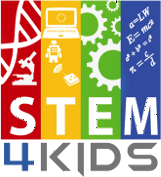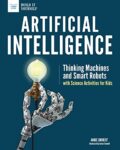STEM education is incredibly important for children, as it teaches them critical thinking as well as the essential skills needed for success in science, technology, engineering, and mathematics fields. However, in today’s world, there is another important skill that children need to learn as well: financial literacy. In my view, financial literacy is getting the most out of math. The ability to understand and manage your money effectively includes skills such as budgeting, saving, investing, and understanding debt. These skills are critical for success in life, no matter what field you choose to pursue. As such, it’s important to include financial education as part of STEM learning.
Financial Literacy
Firstly, financial literacy is essential for career success. No matter what field you choose to pursue, you will need to manage your finances effectively. This includes understanding things like taxes, retirement savings, and insurance. Without this knowledge, you may find yourself struggling financially, even if you are successful in your career.
Additionally, financial literacy is critical for personal success. Children who learn good financial habits early in life are more likely to make responsible financial decisions as adults. This can lead to a lifetime of financial stability and security.
Furthermore, financial literacy is important for making informed decisions about the world around us. In today’s complex world, it’s essential to be able to understand and evaluate financial information. This includes things like understanding the stock market, evaluating investment opportunities, and understanding the impact of economic policies.
Investing
Investing knowledge is a crucial component of financial literacy that can help children get the most out of their mathematics skills. By learning about investing, children can apply their math skills in real-world scenarios, such as analyzing stocks and evaluating investment opportunities.
Investing requires a deep understanding of mathematics, including concepts such as percentages, compound interest, and statistics. By mastering these concepts, children can make informed decisions about their investments, and potentially grow their wealth over time.
Furthermore, learning about investing can help children develop critical thinking skills. Investing requires careful analysis and evaluation of financial information, as well as the ability to make informed decisions based on that information. By developing these skills, children can not only succeed in investing, but also in many other areas of their lives.
In addition, learning about investing can help children develop important life skills, such as patience, discipline, and delayed gratification. Successful investing requires a long-term perspective and the ability to resist the temptation of short-term gains. By developing these skills early in life, children can set themselves up for success in the long run.
In conclusion, financial education is an essential component of STEM learning. It teaches children the skills they need for success in their careers and personal lives, and it helps them make informed decisions about the world around them. By including financial education as part of the mathematics of STEM learning, we can ensure that our children are well-equipped to succeed in the 21st century. By learning about investing, children can apply their math skills in real-world scenarios, develop critical thinking skills, and learn important life skills that will serve them well throughout their lives.
If you agree, please leave your comments below:






